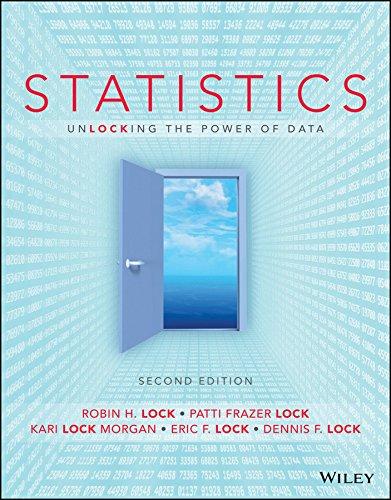Exercise 4.17 discusses an experiment done in Africa testing possible ways to reduce the spread of malaria
Question:
Exercise 4.17 discusses an experiment done in Africa testing possible ways to reduce the spread of malaria by mosquitoes. In the experiment, 43 volunteers were randomly assigned to consume either a liter of beer or a liter of water, and the attractiveness to mosquitoes of each volunteer was measured. The experiment was designed to test whether beer consumption increases mosquito attraction. The report states that "Beer consumption, as opposed to water consumption, significantly increased the activation ... of \(A n\). gambiae [mosquitoes] ... \((P<0.001)\)."
(a) Is this convincing evidence that consuming beer is associated with higher mosquito attraction? Why or why not?
(b) How strong is the evidence for the result? Explain.
(c) Based on these results, it is reasonable to conclude that consuming beer causes an increase in mosquito attraction? Why or why not?
Data From Exercise 4.17:
Does consuming beer attract mosquitoes? A study done in Burkino Faso, Africa, about the spread of malaria investigated the connection between beer consumption and mosquito attraction. In the experiment, 25 volunteers consumed a liter of beer while 18 volunteers consumed a liter of water. The volunteers were assigned to the two groups randomly. The attractiveness to mosquitoes of each volunteer was tested twice: before the beer or water and after. Mosquitoes were released and caught in traps as they approached the volunteers. For the beer group, the total number of mosquitoes caught in the traps before consumption was 434 and the total was 590 after consumption. For the water group, the total was 337 before and 345 after.
Step by Step Answer:

Statistics, Enhanced Unlocking The Power Of Data
ISBN: 9781119308843
2nd Edition
Authors: Robin H Lock, Patti Frazer Lock, Kari Lock Morgan, Eric F Lock, Dennis F Lock





